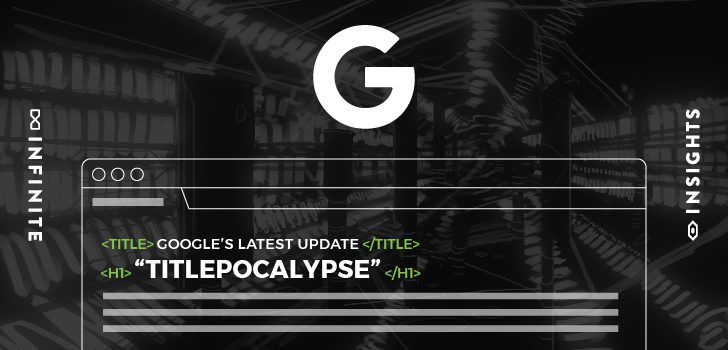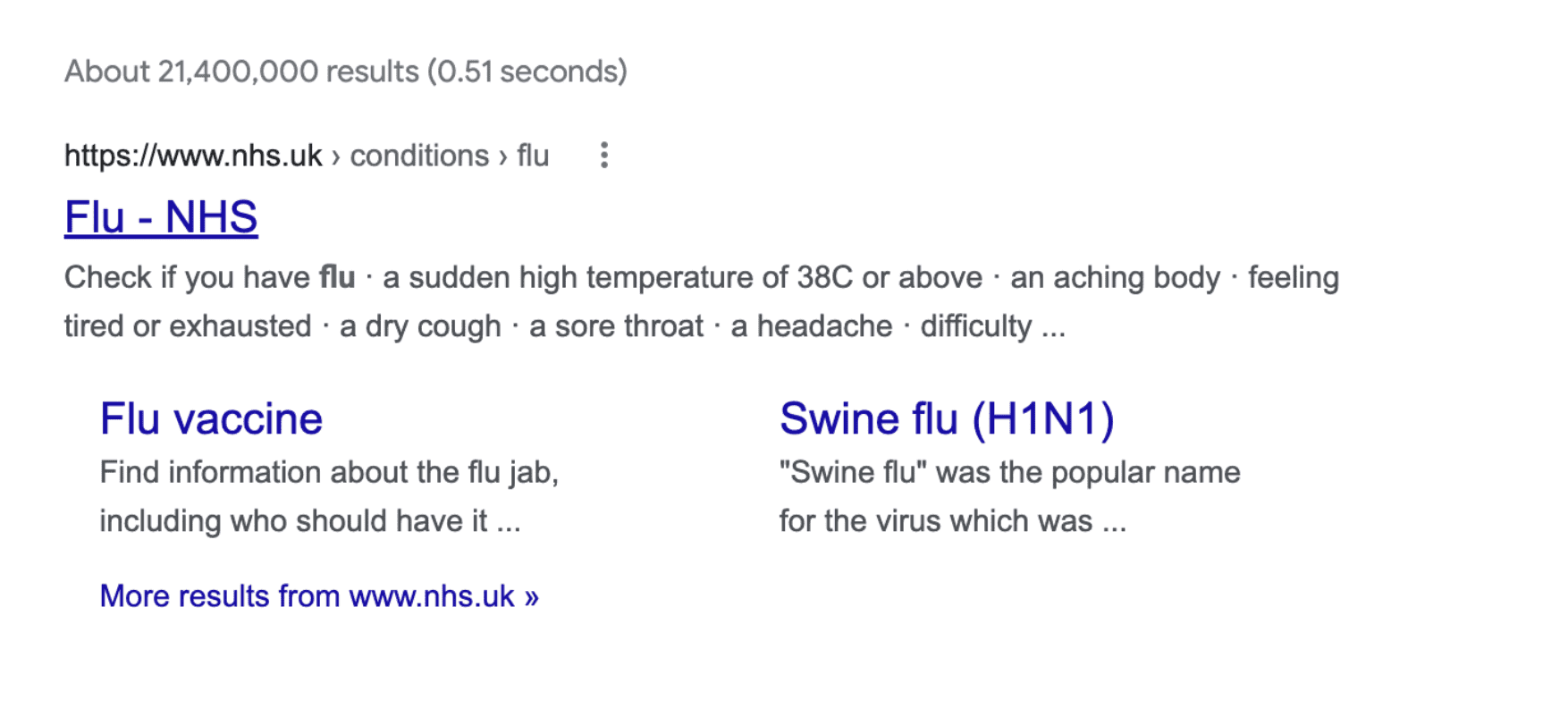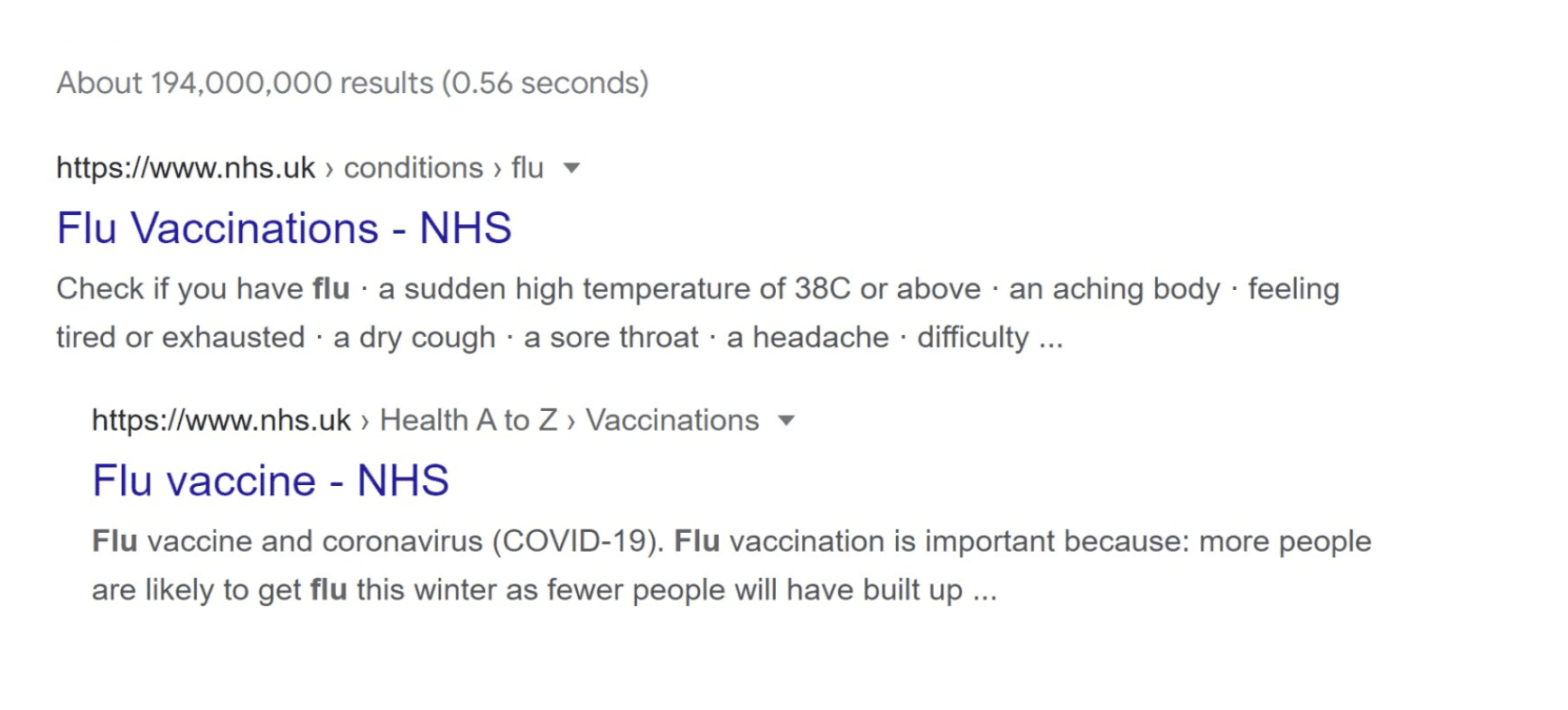What are backlinks? Tips for link building the right way.
You might already know that Google’s algorithm uses backlinks as one of its top ranking factors, but… What the heck...
Read More »
Google frequently makes improvements and updates to its search engine algorithm; however, their latest update has already had major implications for brands.
Coined “Titlepocalypse” by some SEO experts, Google’s Page Title Update is changing the way it generates HTML Title Tags for websites.
If you’re unfamiliar with title tags, they are the blue headlines you see in search engine results before clicking a link. The copy and messaging in these titles play a major role in whether or not a searcher will click through to your website. A poorly optimized title could lead to fewer clicks, and thus less traffic to your website.
Historically, web owners have been able to determine these headlines, ensuring they reflect the brand and content of the page accurately.
However, this update gives Google the discretion to ignore page title tags entirely if it feels the title does not accurately reflect the page’s contents. Instead, it will consider the main visual headline (often the H1 tag), other headers on the page, body copy and internal link text to craft a revised title.
The Page Title Update has already caused disruption for some websites. Health care in particular has seen a lot of volatility after the release. One example we saw was a “Flu” illness and symptoms page getting changed by Google to “Flu Vaccinations”, suggesting that the brand offered flu shots.


There’s also been reports of Google removing relevant city and state information from title tags of local pages in some instances. This has created confusion for users looking for nearby services or stores.
Thankfully, Google has confirmed that it will continue to use designated HTML title tags 80% of the time (this percentage has since been updated to 87%). That means if you’ve optimized your titles with the end user in mind, you should be okay. Regardless, here are some factors that could lead to your title tag being ignored and rewritten:
Title tags will continue to play an important role for websites and SEO. Header 1 tags will now likely have even greater importance, as they are often the first content users (and search engines) visually see. You should monitor your site’s click-thru-rate in Search Console to see if you’ve been negatively impacted.
Unlike previous algorithm updates, the Page Title Update has been rocky for Google (and webmasters). It’s very likely that a patch is imminent to iron out the known bugs.
As with all core search updates, we recommend monitoring your site’s traffic in the coming days and weeks. If you notice major disruptions in Search Console, specifically with either clicks or CTR, you should take action and consider rewriting your page titles.